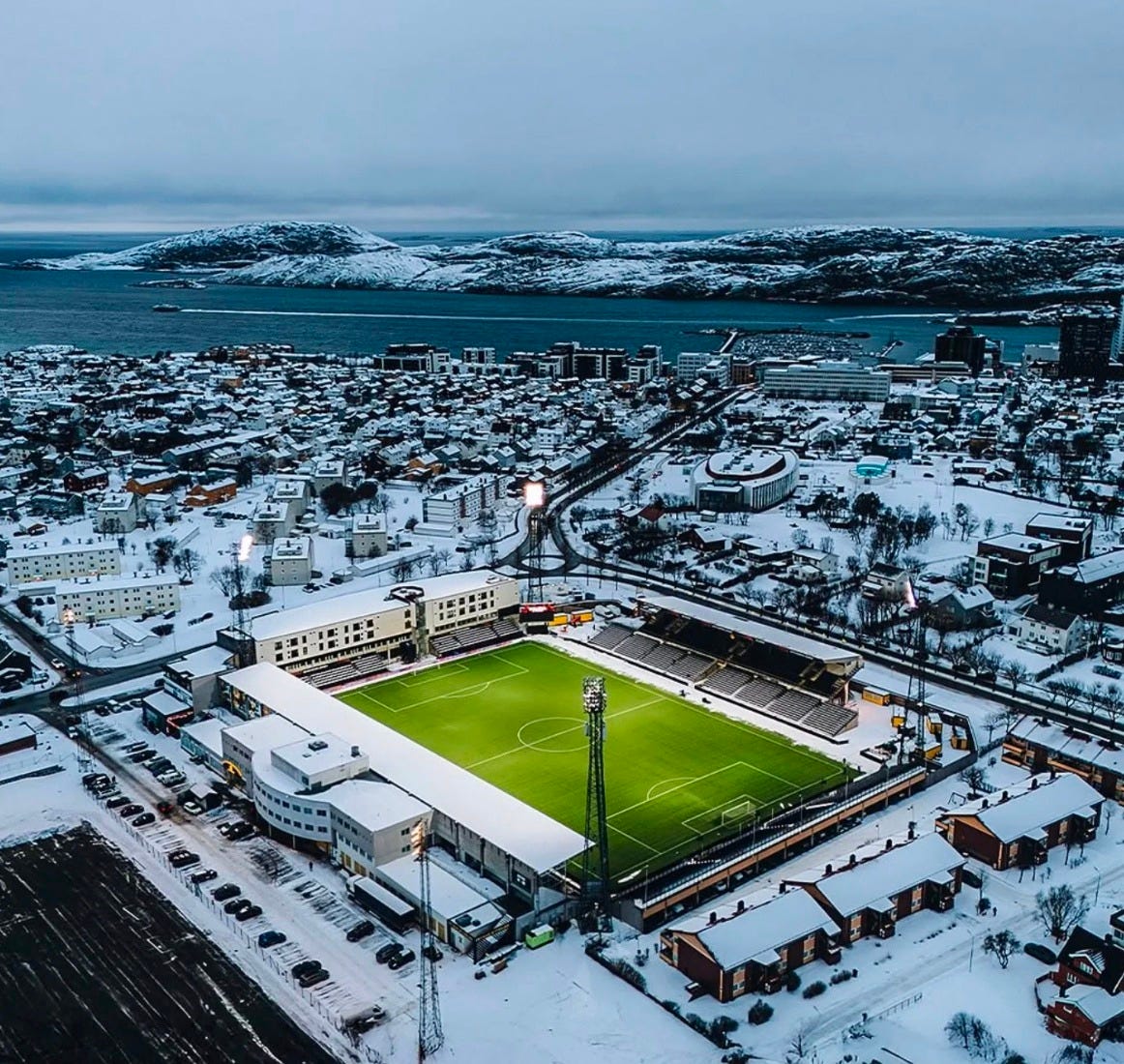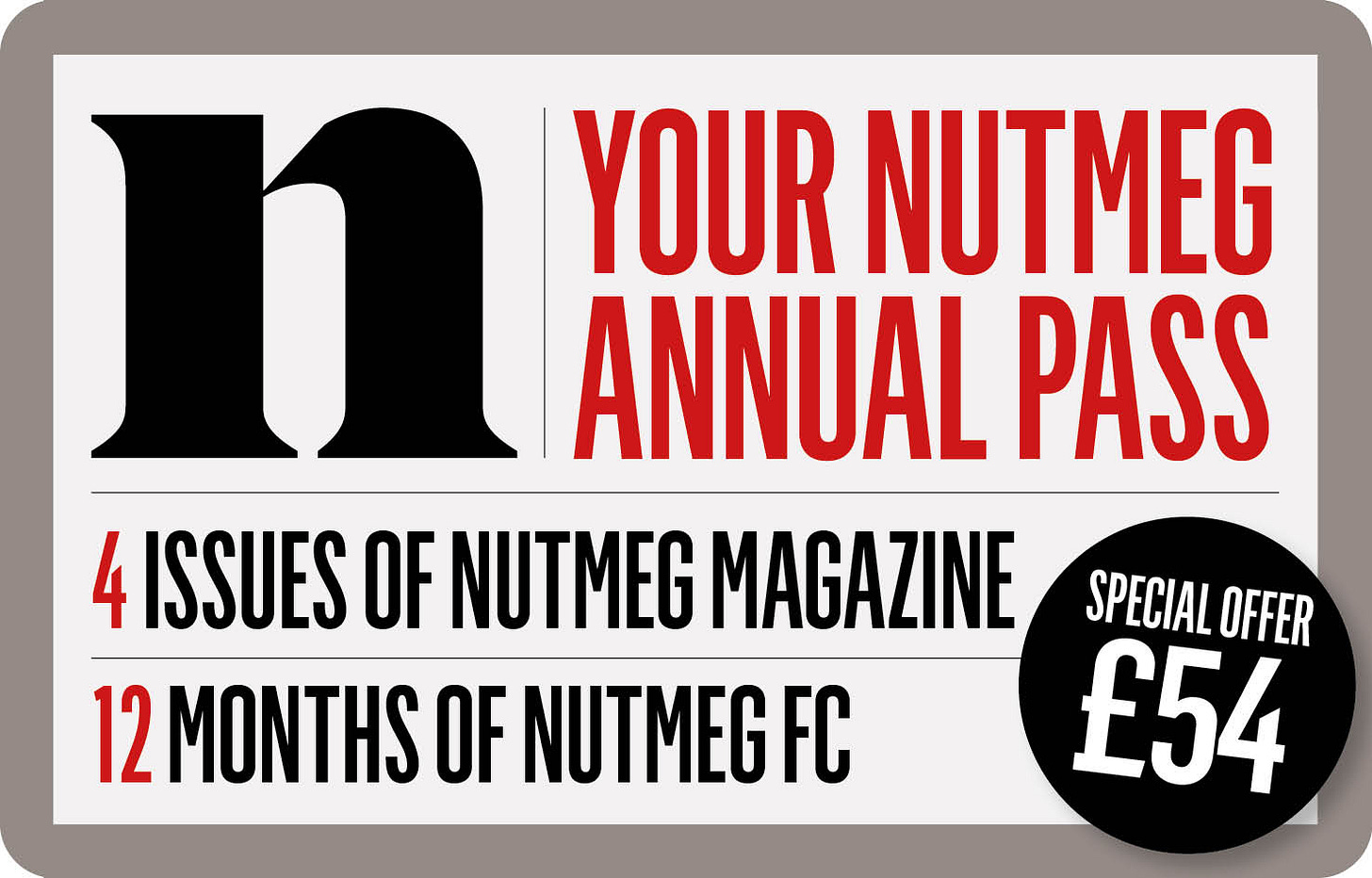The Miracle of Bodø/Glimt — and what Scottish clubs can learn from it
How an outfit with an 8,000-capacity stadium in the Arctic Circle and a turnover of €30m cracked the Champions League
The story of Bodø/Glimt, a tiny Norwegian club based 140 miles north of the Arctic Circle, gained huge traction in spring this year when they reached the knockout stages of the Europa League.
After wins against Olympiacos in the round of 16, they beat Lazio in the quarter-finals to become the first Norwegian team ever to reach the semi-finals of a major European competition.
They lost over two legs to eventual tournament winners Tottenham, but already their recent meteoric rise had been likened to Leicester’s “miracle” Premier League win in 2016.
Why? Because having been formed in 1916, it took Bodø 104 years to win a first Norwegian top-flight title (the Eliteserien) in 2020, and then they won a second title in 2021, finished runners-up in 2022, won a third title in 2023, and a fourth in 2024, and are currently favourites to win a fifth title in six years in 2025.
By the way, Bodø is the town where the club is based, hence the first half of their name. Glimt, which means “gleam”, was and is their nickname. Hence the current full club name, Bodø/Glimt.
Today’s piece, which includes an exclusive interview with Bodø executive Joe Foster — a Briton who has been at the club for five years — will reveal the secrets of their success, and they are extraordinary.
As for European competition, Bodø are this season playing for a sixth consecutive year in Europe.
In 2020-21, that was in the Europa League; in 2021-22, it was in Champions League (CL) qualifying then the Europa Conference League (beating Celtic in that); in 2022-23 it was in CL qualifying, then the Europa League; in 2023-24, it was in the Conference League; and in 2024-25 it was in CL qualifying before that run to the Europa League semi-final.
Now, in 2025-26, Bodø will be playing in the Champions League group phase, having stormed 6-2 past Sturm Graz of Austria in the play-off round.
It’s worth taking a breath here to make some comparisons between the achievements, not least in Europe, of Bodø (from a small northern town in a country of about 5.5million people) to those of Celtic and Rangers (both from a big city in a country of about 5.5m people).
First, some basics: Bodø has a population of around 43,000 that rises to just above 50,000 for the wider municipal area. Their Aspmyra Stadion (below), which has artificial turf and undersoil heating to cope with Arctic conditions, has a capacity of 8,270.
Average annual revenue in Norway’s top division is around €12m (£10m) per club per year but Bodø can expect theirs to be €30m (£26m) or a bit more this year. Average top-division wages in Norway are around €7m (£6m) per club per year, and Bodø in recent years have grown from that figure to perhaps €20m (£17m) now.
Glasgow has a population of around 630,000, rising to around 1.1m for the wider metropolitan area. Celtic Park has a capacity of 60,832, and Ibrox has a capacity of 51,700.
Annual average club revenue in Scotland’s top division is about €30m (£26m) per year, although Celtic’s most recent figure, for 2023-24, was €144m (£124.6m), and Rangers’ most recent figure was €102m (£88m).
Average top-division wages in Scotland are around €20m (£17m) per year per club, although both Celtic and Rangers in the current season will have wage bills of around €80m, or £70m, give or take, depending on achievements.
The bottom line, part 1: Celtic earn nearly five times as much revenue as Bodø per year and have a wage bill four times the size, while Rangers have more than three times the revenue of Bodø, and a wage bill four times the size.
The bottom line, part 2: Celtic lost to Kairat of Kazakhstan in the CL play-off round this season to miss out on the group stages, so will go to the Europa League league phase instead. There’s much less money there, and less prestige. Rangers laboured through two CL qualifying rounds before being humiliated 9-1 on aggregate by Club Brugge and will also be in the 2025-26 Europa League group phase.
As for Bodø, they’ve made it to the 2025-26 CL group phase, where they will make a lot of money and be the subject of intense interest across Europe and the wider world. Below are their eight group-phase fixtures. I think we can reasonably describe this schedule as “tasty” and “big time”.
As to the multiple secrets of Bodø’s success and what other clubs around Europe can learn, not least in Scotland — a nation of a comparable size to Norway — the rest of this feature will detail:
A sea change in Bodø’s mentality after relegation from Norway’s top division at the end of the 2016 season, leading to major changes at executive level and an entirely new club philosophy.
The hiring of a former Norwegian fighter pilot as the club’s mental coach in an attempt to reboot the confidence of the players — and wider staff.
The hiring of a lower-league coach as assistant manager in 2017, who then became Bodø’s manager in 2018, when he started to reap the potential of the club with a frankly extraordinary set of principles from which he has never budged.
How the club philosophy has evolved, starting with an ethos of never spending anything you can’t afford, to having a budget via clever player trading to gambling on innovation.
How the club’s geographical USP has helped them use home advantage to an even greater extent than most clubs.
How the rising UEFA club co-efficient in Norway has boosted Bodø’s chances of European football most seasons, making them more attractive to more players in a virtuous cycle.







